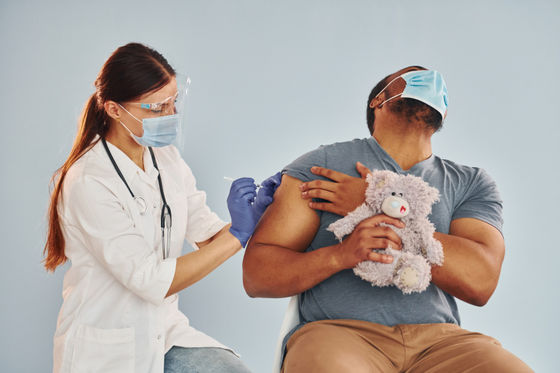Why is there no “cold vaccine”?

For the novel coronavirus pandemic, a vaccine was created in an unusually
Why Isn't There a Vaccine for the Common Cold? A Virologist Reveals the Hidden Reason
https://www.inverse.com/health/vaccine-common-cold-virologist-rhinoviruses
◆Why is there no cold vaccine?
According to Alex Greninger, an associate professor at the University of Washington Medical Center, most common colds are caused by a group of viruses called human rhinoviruses . In addition to colds, it is also caused by human metapneumovirus , human coronavirus (a different virus than the new coronavirus), and parainfluenza virus .
Colds caused by these viruses have symptoms such as stuffy nose, runny nose, sore throat, and cough, but no vaccines or antiviral drugs have been developed.

The reason why vaccines for viruses that cause colds cannot be created is because viruses evolve faster than vaccines can be developed. For example, it is said that
Professor Lawrence Stanbury, a pediatrician at Columbia University, said, ``Viruses purposefully self-replicate in a crude manner. Even if you get infected with a certain virus and get cured, you can get the same illness again in a few years.'' It's probably changed so much that it's starting to take a toll.'
◆Have you ever tried to make a cold vaccine?
Some people have tried to develop a rhinovirus vaccine. In a 1975 study , researchers at the University of Virginia conducted human clinical trials of two types of 10-valent rhinovirus vaccines to determine their safety and efficacy. As a result, although there were no side effects, one dose of the vaccine was only able to induce an antigenic reaction against 30% of the target virus.
In addition, a study published in the scientific journal Nature in 2016 tested 25-valent and 50-valent vaccines using mice and rhesus monkeys, and found that they were immunogenic against about one-third of the circulating rhinoviruses. I got sex .
From the results of this experiment, the authors concluded that 'vaccines that target multiple rhinovirus variants have the potential to elicit robust immune responses against dozens of virus genotypes.' However, even if a 50-valent vaccine were created, it would only cover about one-third of the rhinovirus strains currently in circulation, and at most it would only reduce the infection rate by 30 to 40%.

Even if the infection rate cannot be reduced to zero, there are benefits that can be obtained by reducing the possibility of infection to some extent. This means that the strains that are prevalent will change, and that it will be easier to track which strains are prevalent.
As an example, Greninger points to
◆Is there a possibility that a cold vaccine will appear in the future?
Because vaccines are expensive to develop, test, inoculate, and update, vaccine development is inevitably a tug-of-war between economic effectiveness and is given priority compared to other viral infections such as influenza, which causes many deaths. Your ranking will drop.
Conversely, this means that cold vaccines are recognized to be effective in life-threatening cases. Stanberry said there is a growing movement to recognize the effectiveness of vaccinating immunocompromised patients with vaccines that target some rhinovirus genotypes. Also, patients with chronic obstructive pulmonary disease (COPD) , who are at risk of worsening cold symptoms or leading to serious infections such as pneumonia, and those with asthma or cystic fibrosis. The same is true for people with respiratory illnesses such as pneumonia .

According to two experts, INVERSE said, ``It is difficult to predict whether a cold vaccine will ever be created, but for the time being, healthy people will have to deal with colds on their own. ” he said.
Related Posts:
in Science, Posted by log1l_ks







